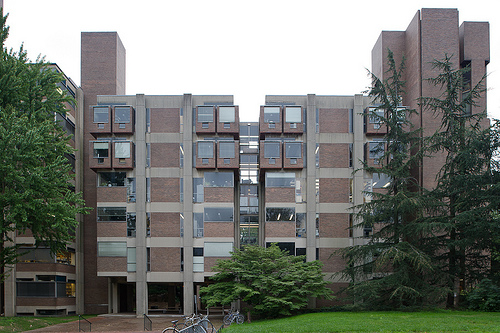
Session Descriptions
Beauty and the Brain | Penn Center for Neuroaesthetics
Anjan Chatterjee, M.D.
This session will describe our current work in uncovering the human brains' aesthetic responses to people, places, and things, sometimes when we are not even aware of harboring such responses.
Brains Communicating | Communication Neuroscience Laboratory
Bruce Dore, Ph.D.
This session will describe recent work in our lab investigating the social and emotional forces that shape behavior. We'll consider two lines of work: one that aims to develop neural signatures of persuasion and idea propagation, and a second that examines psychological mechanisms that underlie both social influence and emotion regulation.
Brains in the World: The Future of Human Interaction | Platt Laboratory
Michael Platt, Ph.D., Michael Montague, Ph.D., and Scott Rennie, Ph.D.
This session will feature interactive talks and demonstrations of work we are doing to measure
Dimensional Neuroimaging & Precision Diagnostics | Center for Biomedical Image Computing and Analytics
The past 15 years have seen a rapid adoption of machine learning methods in
Environmental Effects on
Ruben C.
The current emphasis on genetics affecting brain health and disease risks
Ethical, Legal and Social Impacts of Neuroscience | Penn Center for Neuroscience and Society
Martha Farah, Ph.D., Anna Wexler, Ph.D., and Gideon Nave, Ph.D.
Depending on attendee
Genes First: 22q11.2 Deletion Syndrome Affecting Brain and Behavior | Brain Behavior Laboratory
Raquel E.
The 22q11.2 Deletion Syndrome provides a unique opportunity to examine genetic factors implicated in
Genes, Networks, and Neurodegeneration | Penn Frontotemporal Dementia Center
Murray Grossman, M.D., Corey McMillan, Ph.D., David Irwin, M.D., Ph.D., and Lauren Massimo, Ph.D.
This session will address how genetic variation and
Michael Stauffer
This session will be an introduction to the IBI Idea Factory visualization facility and some of its tools.
Introduction to fully Automatic PICSL Tools for Quantifying Regional Thickness and Volume Measurements from Structural Brain MRI | Penn Image Computing and Science Laboratory
Jeffrey Duda,
A live demonstration of an open-source tutorial for automated brain MRI
Introduction to Interactive Image Processing with PICSL Tools | Penn Image Computing and Science Laboratory
Philip Cook, Ph.D.
A live demonstration of an open-source tutorial for semi-automated brain segmentation and registration with ITK-SNAP software.
Mapping the Brain and Cognition onto Psychosis and Cannabis Use | Brain Behavior Laboratory
David R.
This session will present
Neuroinformatics with Flywheel | Center for Brain Science
Matt Cieslak, Ph.D., and Ted Satterthwaite, M.D., Ph.D.
Yvette Sheline, M.D., Romain Duprat, Ph.D., and Nicholas Balderston, Ph.D.
Questions
- What is meant by "
neuromodulation - How is TMS performed in neuropsychiatric disorders?
- How is TMS performed in
fMRI What are the tr eatment outcomes?
Roy Hamilton, M.D., John Medaglia, Ph.D., Branch Coslett, M.D.
This session will provide an overview of research in Penn's Laboratory for Cognition and Stimulation geared towards using non-invasive
Population Neuroscience for Understanding Human Variation in the Lifespan | Brain Behavior Laboratory
Theodore Satterthwaite, M.D., Ph.D., Raquel E.
In this session we will discuss advances in using large-scale efforts to understand individual differences in brain and behavior across the lifespan. In particular, we will focus on data resources new techniques for quantifying variation in brain and behavior during both normal brain development and abnormalities associated with environmental adversity and
The Computational Brain | Computational Neuroscience Initiative
Vijay Balasubramanian, Ph.D., Nicole Rust, Ph.D., and Joshua Gold, Ph.D.
The Computational Neuroscience Initiative (CNI) draws together Penn's scientists across the Life Sciences, Physical Sciences, and Engineering to spearhead the development and use of
Virtual Reality in Brain Research | Brain Science Center Virtual Reality Lab
Branch Coslett, M.D.
This session will introduce the Virtual Reality Lab and the services that it provides. The potential utility of the approach will be illustrated by brief descriptions of the ongoing research projects that exploit VR to address research and clinical questions.
